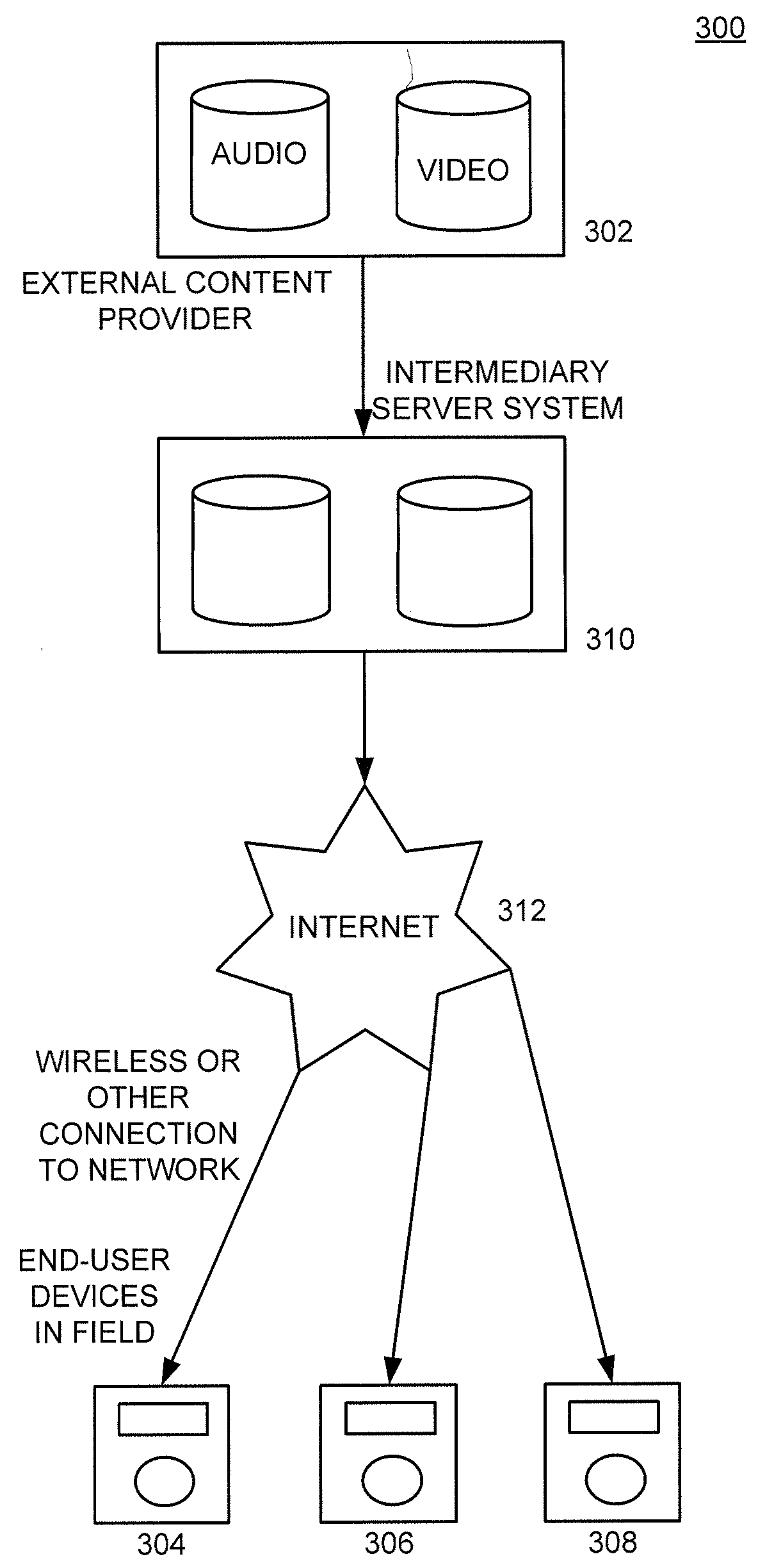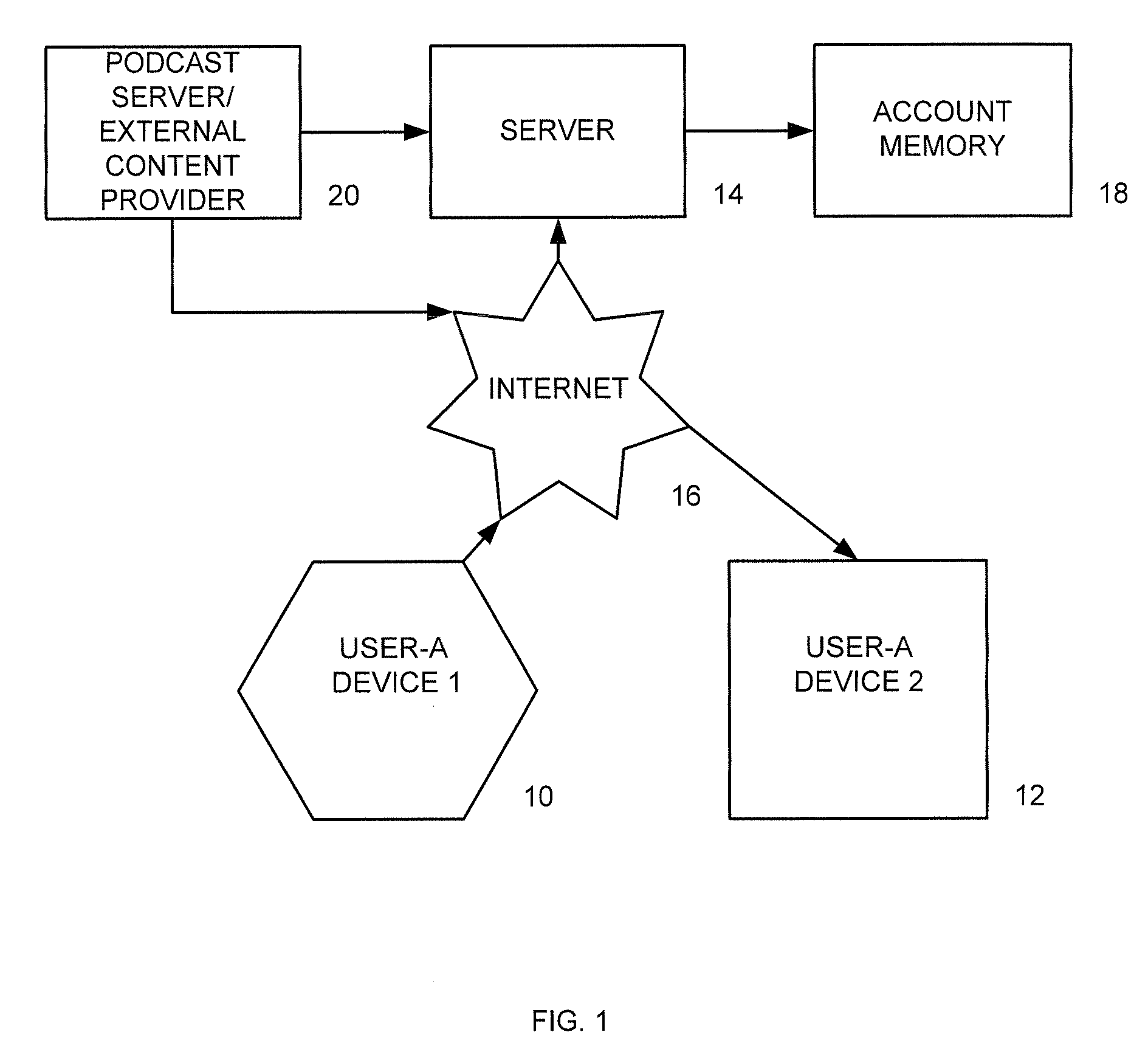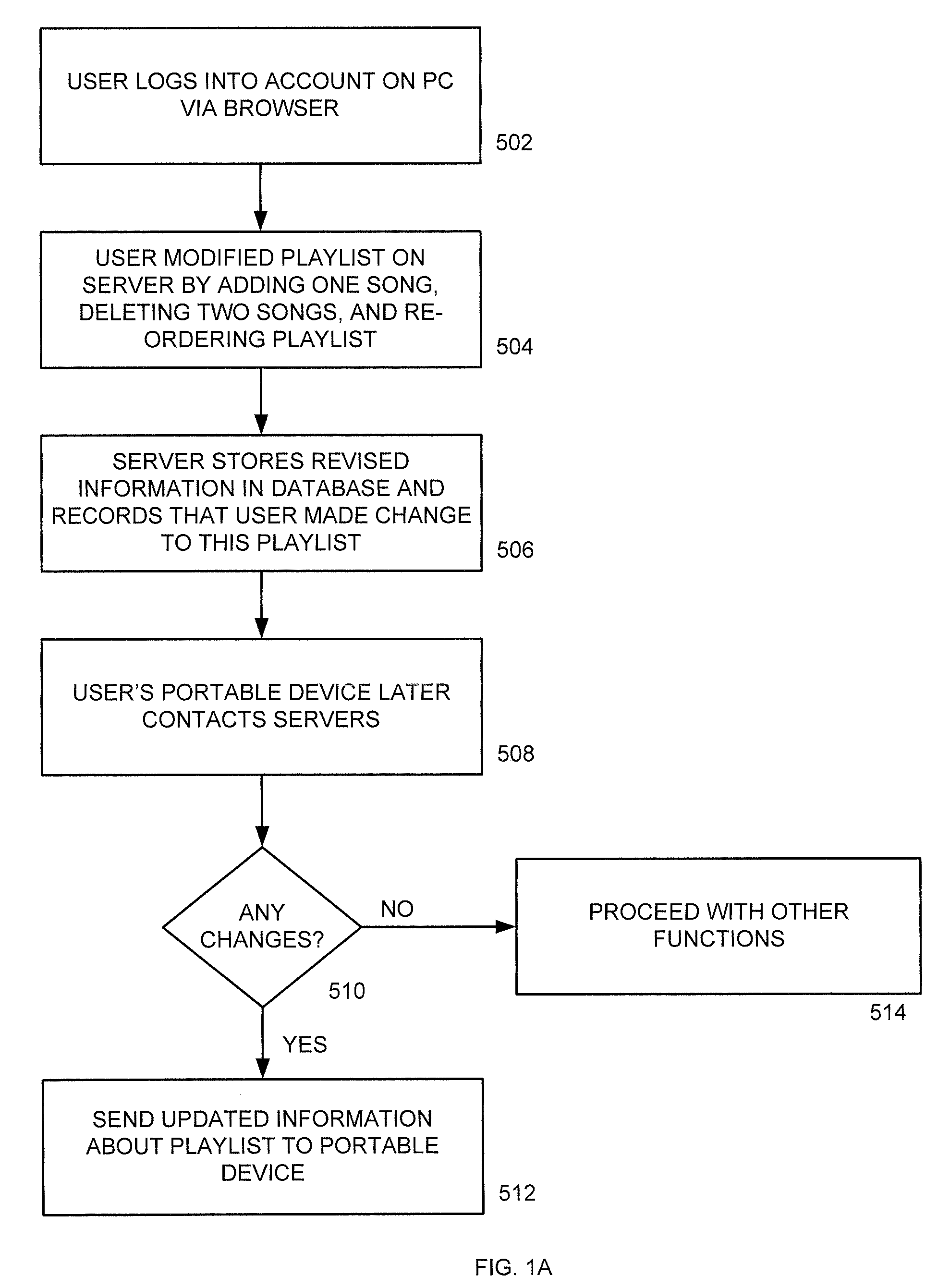Audio visual player apparatus and system and method of content distribution using the same
a technology of audio visual player and audio visual content, which is applied in the direction of electronic editing, digitised analogue information signal, television system, etc., can solve the problems of limited portable use and access to such digital audio and video content, data transfer, advanced sorting and sequencing of selections are difficult or impossible for users to achiev
- Summary
- Abstract
- Description
- Claims
- Application Information
AI Technical Summary
Benefits of technology
Problems solved by technology
Method used
Image
Examples
Embodiment Construction
[0046]Feature 1—Profile Selection Remote from the Portable Device
[0047]In the original system described in the parent application, the emphasis was on the portable device. The portable device was set up to allow a user to make all the changes in the user profile itself. However, in some instances, a user may prefer to make changes in his profile from a desktop or laptop computer because these latter devices have bigger screens and, generally, more full-functional interfaces. A system performing this function is shown in FIG. 1.
[0048]In FIG. 1, a system 100 is shown in which a user owns, operates or has access to several different devices, two such devices labeled 10 and 12 being shown in the Figure. Each of the devices has access to a content server 14 over the Internet 16, using a wired or a wireless connection (e.g. WIFI) and with or without a browser. Through each device, the user can access his account on the server 14, using a user name, password, etc. Once he gains access to h...
PUM
 Login to View More
Login to View More Abstract
Description
Claims
Application Information
 Login to View More
Login to View More - R&D
- Intellectual Property
- Life Sciences
- Materials
- Tech Scout
- Unparalleled Data Quality
- Higher Quality Content
- 60% Fewer Hallucinations
Browse by: Latest US Patents, China's latest patents, Technical Efficacy Thesaurus, Application Domain, Technology Topic, Popular Technical Reports.
© 2025 PatSnap. All rights reserved.Legal|Privacy policy|Modern Slavery Act Transparency Statement|Sitemap|About US| Contact US: help@patsnap.com



